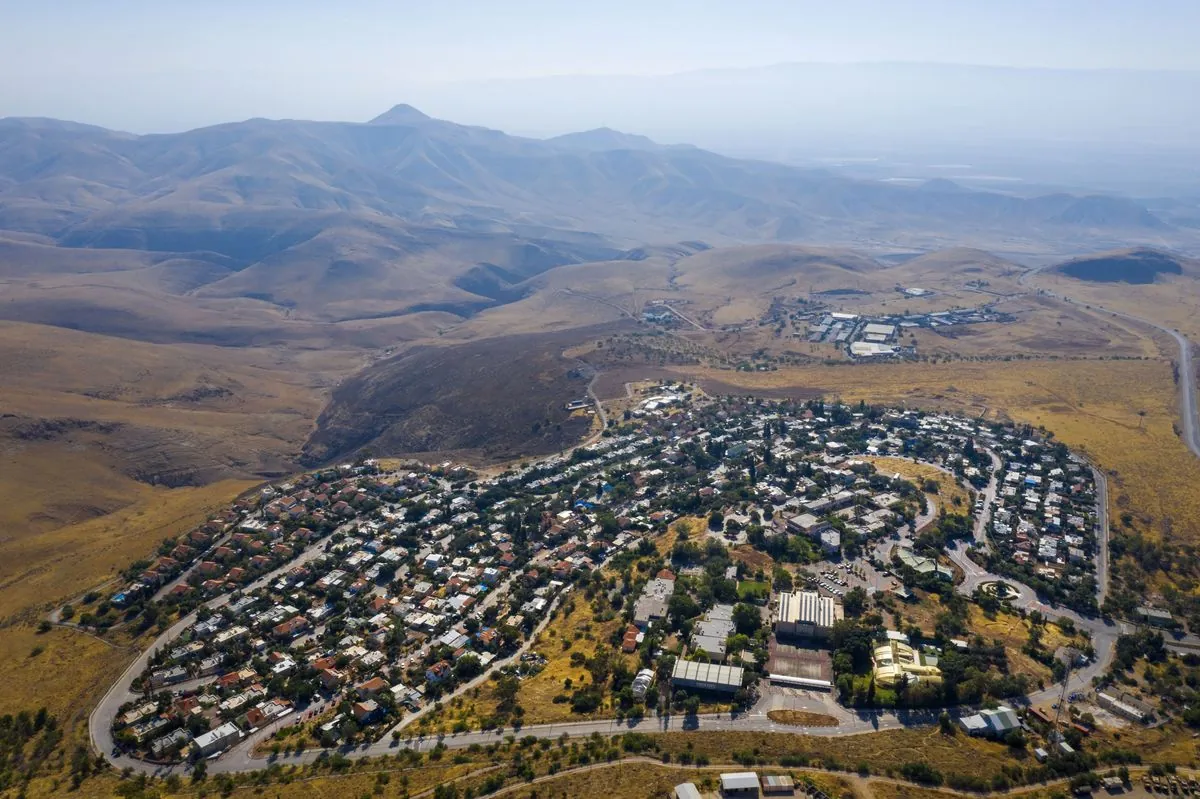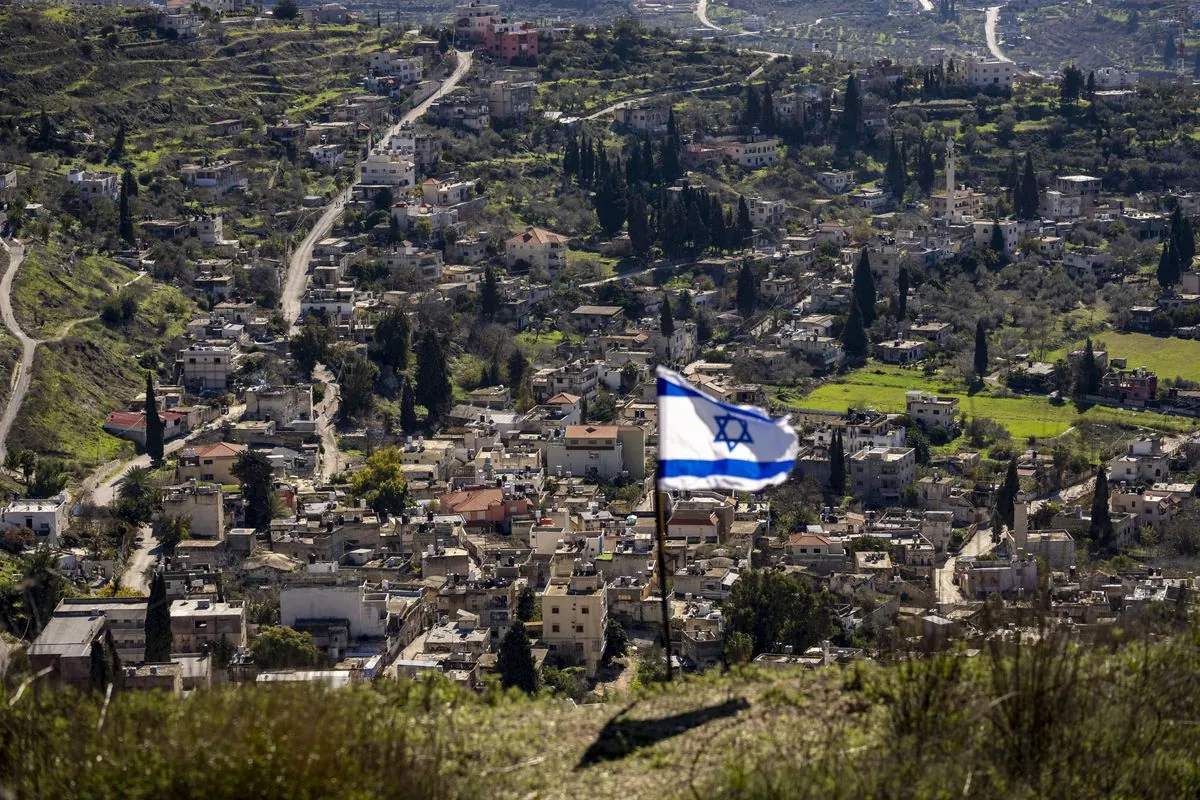Israel's West Bank Expansion Threatens Two-State Solution
Netanyahu's government accelerates settlement growth and land seizures in the West Bank, impacting Palestinian communities and complicating peace prospects. International criticism has limited effect on expansion efforts.

Benjamin Netanyahu's coalition government has significantly intensified Israel's presence in the occupied West Bank over the past 19 months. This expansion, driven by the settler movement, poses a substantial challenge to the potential creation of a Palestinian state.
The government has approved strategic land acquisitions, totaling nearly 6,000 acres in 2024 alone. This has been accompanied by major settlement construction, increased demolition of Palestinian property, and enhanced support for illegally built settler outposts. These actions collectively represent the most significant territorial changes in the West Bank in decades.
While the Biden administration advocates for a diplomatic solution to the Gaza conflict that includes a path to Palestinian statehood, far-right political figures in Israel's government are actively reshaping the region's geography. This ongoing transformation is making the two-state solution, as envisioned in previous peace accords, increasingly unfeasible.

Palestinians in six communities described severe restrictions on their daily lives as settlements encroach on their land. These limitations affect their freedom of movement and access to farmlands that have long been their livelihood. In some cases, settler violence has led to the complete erasure of Palestinian villages.
Benjamin Netanyahu, Israel's longest-serving prime minister, formed his current government in December 2023 with a coalition agreement promising to "promote and develop settlement in all parts of the Land of Israel," including the West Bank.
Bezalel Smotrich, a longtime settler activist now serving as finance minister, leads the effort to expand Israeli control in the area. Smotrich's appointment to a position within the defense ministry has given him extensive authority over Israeli policy in the West Bank.
"To settle the land, to build it, and to prevent, for God's sake, its division ... and the establishment of a Palestinian state"
The West Bank is home to an estimated 3 million Palestinians and over 500,000 settlers, with the settler population growing by more than 15% in the past five years. This demographic shift has been accompanied by a surge in settlement approvals and the legalization of previously illegal outposts.
The United Nations reports that settler attacks have doubled under Netanyahu's coalition government, with 1,143 separate incidents recorded since the start of the war in October 2023. These attacks have resulted in at least 114 Palestinians being killed or wounded.
International criticism of Israeli settlements has had limited impact. In February 2024, U.S. Secretary of State Antony Blinken reiterated the Biden administration's position that settlements are "inconsistent with international law." However, executive actions, including sanctions on illegal settler outposts, have not significantly slowed expansion or reduced violence.
The Israeli government has also accelerated the demolition of Palestinian structures in the West Bank. Since December 2023, over 2,000 structures have been demolished, displacing more than 4,000 people. This represents a significant increase compared to the previous two years.
Palestinian communities face severe restrictions on construction, with only 0.5% of Area C designated for Palestinian building, compared to 26% for Israeli settlers. This disparity in land allocation and building rights has led some observers to describe the situation as "official apartheid."
Despite occasional demolitions of illegal settler outposts by Israeli authorities, these structures are often quickly rebuilt. The persistence of the settler movement is evident in their determination to establish and expand their presence across the West Bank.
As the situation continues to evolve, the prospects for a viable two-state solution appear increasingly remote. The ongoing expansion of Israeli settlements and the erosion of Palestinian land and rights present significant obstacles to future peace negotiations and the establishment of an independent Palestinian state.


































